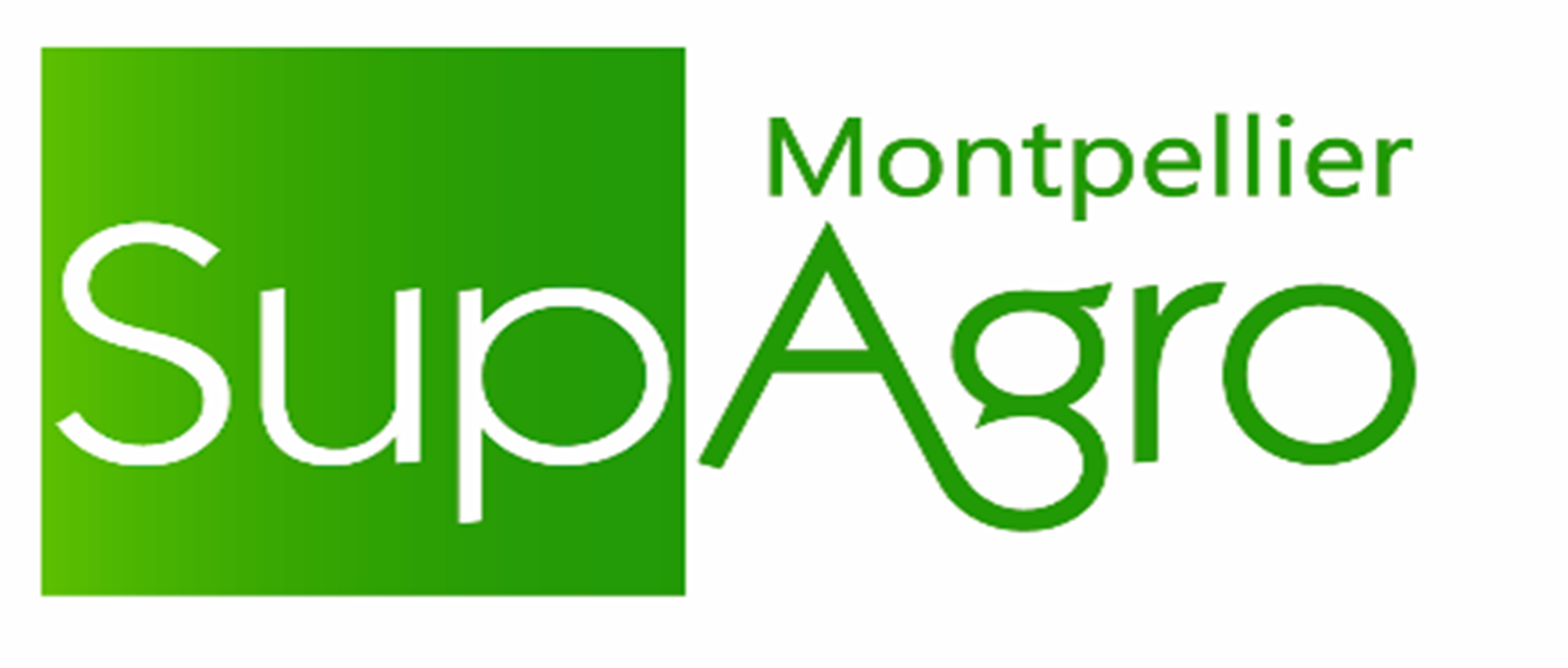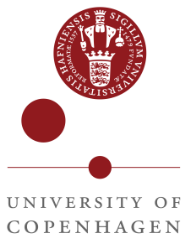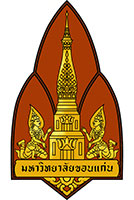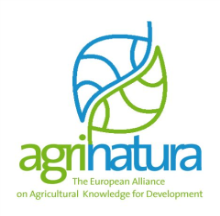




Prince of Songkla University (PSU), was established in 1967 as the first university in southern Thailand. It consists of five campuses offering various programs e.g. agro-industry, biochemistry, chemical engineering, energy, epidemiology, Islamic studies, natural rubber, palm oil, and pharmaceutical sciences. PSU comprises 35 faculties, four hospitals, and more than 40 excellent research centers, all committed to academic and research excellence, strong social responsibility and active engagement in community services. PSU is in the top 5 universities in Thailand as ranked by the national research organization and the top university in southern Thailand. The university always acts as a centre for all academic works in the South in collaboration with all universities in the southern region as well as with the key universities in different regions of Thailand. The main aims of the university are to raise general education standards and support regional industry and development. Moreover, the university aims to provide academic and technical services for strong and healthy livelihoods and communities, and to take an active role in the preservation of the nation’s heritage in arts and culture, not only for those from southern Thailand but the nation as a whole. PSU houses over 40,000 students, with international students from almost 50 nations and offers over 140 Bachelor’s, 100 Master’s, and 60 Doctorate degrees taken care by over 2,000 teaching staff.
+ moreFaculty of Natural Resources (FNR) is a founding faculty at PSU that is accomplished in fulfilling the mission of the university and well recognized nationally and internationally. FNR has been working closely with the communities in agriculture and natural resources management since the university was established. The administrators and researchers have played key roles and participated in the different agricultural and natural resource management activities. Our researchers have funding support from many sources to do research projects and outreach programs to transfer knowledge and technology that are beneficial to farmers. We work closely with the agricultural knowledge dissemination sectors of the Local Government Organizations in several southern Provinces supported by the Ministry of Agriculture and Co-operatives. Moreover, we are supported by the Thailand Research Fund (TRF), the key research organization in Thailand, to be a coordinator of TRF Network for Area-Based Collaborative Research for Development.
As PSU is situated in the rich natural resources and the main agricultural production region in Southern Thailand, the university’s Faculty of Natural Resources has established a body of knowledge in agriculture and resource management over a long period that greatly supports agricultural development in the South as well as the nation as a whole. The Faculty of Natural Resources has developed International Joint Master’s Degree in Natural Rubber Production, Technology and Management in partnership with Kasetsart University and renowned French scientists. The Faculty of Natural Resources, the faculty responsible for PISAI, has participated in 3 Erasmus Mundus projects (EURASIA 2, ASKASIA and ALFABET) and 3 Erasmus+ projects (AsiFood, SIMPLE and MS FSCC). Therefore, PSU will have the capacity to be the coordinator of the PISAI project and achieve the overall management, implementation, monitoring, and outputs and outcomes of the project.

With internationalization being considered a major development policy of the University, Kasetsart University has accelerated and provided strong support to initiate and conduct various collaborative programs with more than 300 partners worldwide. With the vision “to Become a World-class Leading Research University”, Kasetsart University possesses the potential and readiness to pursue joint researches as well as to share experience and accumulated knowledge with international partners on the international stage. Thus, despite its status as a public-autonomous university in Thailand where Thai is the medium of instruction, KU offers more than 500 courses in English and other languages for the benefit of Student Mobility Programs of the University.
+ moreThe public-autonomous Kasetsart University (KU) is Thailand’s first specialized agricultural university and is considered one of the most prestigious among the nation’s 150 universities. KU was established in 1943 and translates into “University of Agriculture” in Thai. The Thai name refers to KU’s origins as a university dedicated to agricultural sciences. Even though KU has since expanded its curriculum to cover many other subject areas as well, it is still internationally known for its top tier research and programs in agriculture, tropical forestry, agro-industry, fisheries and engineering. Today, in addition to agricultural sciences, KU also offers courses in science, arts, social sciences, humanities, education and architecture. KU has four campuses in Thailand, with Bang Khen campus in Bangkok as its flagship campus. There are around 67,000 students enrolled at KU, including over 200 international students, thus making it one of the largest universities in Thailand.
KU will serve as the partner of the PISAI project which will ensure the effective and efficient delivery of project targets and outputs. Accordingly, KU will take lead in WP 2. KU will serve as study post for the joint double master’s degree – as a host or home university for the graduate students of the programme. Moreover, KU will be involved in the preparation process (WP2), and quality planning which will involve credit recognition between Thailand and European HEIs.

Ever since its founding, Chiang Mai University (CMU) has aimed at being a comprehensive institution of higher education. CMU has launched innovative initiatives and development projects, the results of which utilize ever advancing standards of teaching and technology transfer, all for the sake of social and economic development of the region and the country as a whole. CMU has gained a reputation of high academic standards in Asia. It is also an established member of the ASEAN University Network, paving its way forward to be an important Education Hub in the region. Locally it is acknowledged as the pre-eminent center for study in the North of Thailand and one of the top four universities in Thailand in terms of academic quality. CMU ranked 104 in Asia and in the 551-600 range among World Universities as published in “QS Universities Ranking 2016”.
+ moreCMU has 20 faculties and 1 college, total number of students was 35,500 as of 2016. CMU provides 95 undergraduate programs including 3 international programs, 45 graduate programs including 10 international programs for doctorate degrees, 135 programs including 9 international programs for master’s degrees, and 41 programs for graduates and post-doctorates
Internationally, CMU has 140 Collaborative Agreements and Memoranda of Understanding (MOU) with foreign universities, institutes, and international organisations in 28 countries. Activities covered by these Agreements and MOU include: academic collaboration, co-advisorship of theses and project consultation, joint research, staff and student mobilities, curriculum development, joint seminars, and information exchanges. Through constructive interaction with more than 250 partners worldwide, CMU seeks to enhance both the quantity and quality of research and development projects conducted at the University. The increasing number of international students ensures success in working towards the goal of providing a world-class education.
Chiang Mai University will participate in selecting students from partner universities, will guide and supervise the selected students at the participating partner universities. Chiang Mai University will participate in the administration of the project according to the project proposal.

Montpellier SupAgro (http://www.supagro.fr/web/ ) is one of the top agriculture Higher Education Institutions in France, specialised in management of natural resources, rural development and the agri-food sector.
The institute combines its expertise with a number of sister research organisations also based in Montpellier (INRA, CIRAD, IRD, CEMAGREF, IFREMER, CNRS), making Montpellier the first Pole of Excellence in Europe in the field of agriculture and related disciplines, with over 100 research units and 4000 staff, of which 2200 work in teaching and research in agriculture. Montpellier SupAgro hosts 1500 post graduate students, including 250 PhDs, all in agricultural sciences.
Montpellier SupAgro has a long history of experience cooperating with Kasetsart University (KU) and with Prince of Songkla University (PSU) with which it has MoU for co-tutelle PhDs since 2004. With regard to the MSc, a joint degree agreement has linked KU and Montpellier SupAgro since 2014, and this framework can be used [is this sentence complete].
In Europe, Montpellier SupAgro currently coordinates several joint MSc degrees, including Vinifera Euromaster and Agris Mundus (both Erasmus Mundus). All these MScs include a compulsory mobility track in two European universities, a model that was used for building the basis of the master PISAI. Therefore, SupAgro has 10 years now of expertise in training others in the engineering of joint degrees, in the management of student and staff mobilities, the recognition of credit transfers, and in the administration of these systems.
Among these European courses, Agris Mundus (MSc in Sustainable Development of Agriculture) has a special role to play with the MSc PISAI since both are addressing the same challenge and have close learning objectives. The association of Master PISAI with Agris Mundus will therefore be strengthened.
Montpellier SupAgro will bring expertise in four main domains
- Directly supporting the development of field-based courses, based on the experience developed at Montpellier in the various courses using this pedagogy. Trainers from the Thai partners can be invited to follow some of those courses at Montpellier, while faculties from Montpellier can participate in the elaboration of such courses in Thailand.
- The management of joint degrees, and the organisation of the various services providing quality assurance in a joint degree system.
- The assistance in building, within PSU, the capacity to manage Erasmus+ funded projects, by transferring and adapting the tools elaborated in Montpellier for this purpose.
- As the other European HEIs involved in the project, SupAgro will welcome students from Master PISAI selected for a third semester in Europe, and will encourage its own students to join in pairs with PISAI students to set up joint master’s theses in pairs.

University of Copenhagen (www.ku.dk) is one of the largest universities in northern Europe, with 37.000 students, #1 in Scandinavia according to the Shanghai and THES rankings and a member of the International Alliance of Research Universities (www.iaruni.org/), and ranked #6 globally within the field of Agriculture. UCPH is organized in 6 faculties, where the Faculty of Science has an applied and business-oriented approach to the natural sciences.
+ moreThe academic staff totals around 4400 and 9000 BSc and MSc and 1500 PhD students are enrolled at the faculty. Department of Plant and Environmental Sciences focuses on research into ecological interactions and agricultural production with a particular focus on climate and environmental effects – molecule, organism and populations to eco-systems.
The Faculty participates in numerous Erasmus programs, including two MSc (Agris Mundus, Sutrofor) and two Doctorate (AgTraIn, FONASO) within sustainable production and natural resource management in the tropics and subtropics. Key staff are extensively involved in capacity development programs at HEI worldwide, including several of the project partners.
University of Copenhagen will contribute mainly via participation in joint field course activities in Thailand. UCPH has run field courses within natural resource management for the past 15 years, with Uuniversity partners in Southeast Asia and Africa, and this activity follows in natural continuation of existing expertise and experiences. UCPH may also host students on courses in Copenhagne, as well as send MSc students on the Agricultural Development MSc program for field work in Thailand in connection to their thesis field work.

The goals of Khon Kaen University (KKU) are to assist our students and the community gain satisfaction and happiness in their studies and lives; be they pupils at lower schools to university students and university personnel, the general public and local people. The university plans to set its role in the Greater Mekong Sub-region (GMS) as a leading educational institution and has set its mission to improve education management in various disciplines, from research, academic services, and arts and culture preservation. The university will use technology and knowledge appropriately so that it can move forward with mindfulness and concern for the community and society. From the beginning to present, graduates from the Khon Kaen University are endowed with unique features that make them ready to work with attention and care to do good deeds for society and the community.
+ moreThe university has a strong research network and is a hub of excellence for research in various fields. KKU also emphasizes the role of local wisdom of the community and connecting the knowledge of interdisciplinary fields to be in line with community or social needs. The university aims to focus on maintaining, preserving and supporting local arts and culture in the community. Our mission reflects upon KKU’s ideal to being the “University of Healthy and Happiness” by adhering to the following concepts:
Caring for the community and society It is like a picture of a leaf’s fine and delicate lines, which expresses its care and sharing to community, society and environment.
Connecting with bodies of knowledge This picture of Isaan keed pattern shows the connections through the body of knowledge to help solve social problems.
Creating for work It is the picture of gable (or triangular end of a roof), in the form of Isaan sun-lights, which expresses the lights of wisdom for creative works, graduates, research work, and academic services.
Happiness The University of Healthy It is the paintings’ lined patterns on Isaan walls, which are represented in the picture of man, who expresses the happiness of pupils, students, personnel and the general public in the GMS region and also across the globe.
KKU will participate in the dissemination and exploitation of the project activities, involve in students’ field course, selecting and supervising the students.

The Czech University of Life Sciences, Prague (CULS) is a public university, established by Act No.111/1998 Coll. on Higher Education Institution. CULS offers higher education in six faculties: Economics and Management; Agrobiology, Food and Natural Resources; Forestry and Wood Sciences; Environmental Sciences; Engineering; Tropical AgriSciences all in one institute – the Institute of Education and Communication. CULS offers Bachelor’s, Master’s and Doctorate programmes for almost 25,000 students (including international students from 90 countries). Since the year 2000, CULS has been participating in more than 50 international projects, e.g. Leonardo, Tempus, Grundtvig, Comenius, CEEPUS or projects funded by Visegrad Fund. The projects implemented under the above mentioned schemes were also used to develop student and staff mobility and helped the IRO staff to acquire experience with all related organizational aspects. Moreover, CULS has been coordinating with several Erasmus Mundus projects, e.g. EURASIA2 (Action 2), ASKAsia (Action 3) and ALFABET (Action 2), and has been a partner in other EM projects, e.g. EURASIA, CASIA, and EULAlinks. CULS is currently the coordinator of two running Erasmus+ CBHE projects (IQAT and SIMPLE) in Asia.
+ moreThe Faculty of Tropical AgriSciences (FTA), which is the main implementing faculty, offers students a wide ranging education, covering the entire area of the agrarian sector outside the Czech Republic and in international development cooperation. FTA has outstanding and long-term experience in the coordination of development projects financed by the CzechAid, EuropeAid, USAID and UNDP – in Angola, Bosnia, Cambodia, Ethiopia, Georgia, Haiti, Jordan, Kyrgyzstan, Mali, Moldova, Mongolia, Peru, Senegal, Uzbekistan, Vietnam and Zambia. With the growing importance of international relations in today's globalized world, the FTA is among the most dynamically developing educational and research institutions. Details at: www.projects.ftz.czu.cz.
CULS is the project partner mainly responsible for the project promotion and Quality Assurance. As a project partner, it is included in the process of development, the operational project decisions and administrative aspects (ensuring on-going internal and external communication and information exchange, preparing the regular project reports, ensure monitoring and evaluation activities), promotion, dissemination and sustainability activities.

The University of Helsinki is the most important HEI for agriculture and forestry in Finland. Out of more than 20 universities in the country, UHEL receives 24% of the total budget funding for universities, employs 21% of all professors, but hosts 57% of the national Centres of Excellence in Research. University of Helsinki belongs to the League of European Research Universities (LERU), and is ranked within the top 1% of research universities in the world. UHEL as a whole ranks repeatedly on places 60-80 in international university evaluations, while in the field-specific rankings Agriculture was at place 28 in the world in 2015 (NTU). Scientists from the Department of Agricultural Sciences and the Department of Forestry will participate in PISAI. They reside on the Viikki Campus that is one of the largest multidisciplinary research and education centres in Europe, affiliating ca. 2000 scientists and 6000 students in four faculties and two basic research institutes. Active involvement of students in on field activities is a common practice in these departments with field experiments being carried out on two Research Farms belonging to the Department. Various units of the University of Helsinki have collaborated for a long time with academic units in Thailand, and conducted research in this country. The UHEL researchers (HH, IMH below) have stayed at Kasetsart University on Erasmus-staff exchange programme and ,as a follow-up, conduct currently research on cassava IPM in SE Asia.
+ moreThe Faculty of Agriculture and Forestry runs five international MSc-programmes, and many more are available at other faculties on the Viikki campus. UHEL has a large network of Erasmus and other agreements covering academic institutions in all parts of the world, which provides further expertise and support to the PISAI project.
UHEL will bring the expertise on three main different domains
- Building the capacity to put in place a quality assurance system with the courses in Thailand, especially within agriculture and forestry, that will be selected to be reviewed and quality monitored.
- The assistance in building the capacity to manage internationally funded projects with focus on research-based learning and capacity development.
- Directly supporting the development of field based courses in agriculture and forestry, based on the experience accrued at UHEL in curriculum development and projects in SE Asia. Trainers from the Thai partners can be invited to follow some of these courses at the University of Helsinki, while staff from UHEL can participate to the elaboration of such courses in Thailand

AGRINATURA «The European Alliance on Agricultural Knowledge for Development» is the association of the major HEIs in Europe dealing with Agricultural Research and Higher Education for Development. It currently encompasses 26 universities and research organisations from 16 European countries and is the main gateway between Europe and the rest of the world for cooperation in agriculture and natural resources management for development. Agrinatura is represented in the PISAI consortium by its European Economic Interest Group (Agrinatura-EEIG), especially created to facilitate the access of European academic and scientific research organisations in agriculture to European programmes. The organisation facilitates the exchange of good practices and lessons learned. It has long standing experience on raising awareness among its members and within a network of partners on agricultural research for development, building joint collaborative projects and dissemination of results.
+ more
It has been involved in several Edulink 1 or Asia link projects as an associate partner, often in cooperation with Prince of Songkla University and Kasetsart University, specifically:
- ASK ASIA: Agriculture, Skills, Knowledge in Asia: competences and employability of Erasmus Mundus graduates in Agriculture in the Asian Professional Market (Erasmus mundus action 3)
- Eurasia 2 and ALFABET, both projects of credit mobility (Erasmus Mundus action 2).
Searca and Agrinatura also signed an MoU in 2015 to raise awareness for agriculture in S.E. Asia and in Europe, to support jointly their members to build cooperation and to disseminate results of their projects. The current project is a result of these efforts, and Agrinatura will be happy to mobilise human resources from its members to bring specific expertise (beyond any one of the three full EU partners), when required.
It will offer the expertise of all the staff from its 26 members when there will be a need for experts that the three full European partners will not be able to fulfil. Together with SEARCA in Asia, Agrinatura will assist PSU in the dissemination of results in Europe. Agrinatura will help with communication, advocacy support, and creation of awareness. It will regularly report on the project and the Master PISAI at its yearly general assembly and at the Tropentag, a major European event that gathers around one thousand students and staff in Europe regarding tropical agriculture issues.